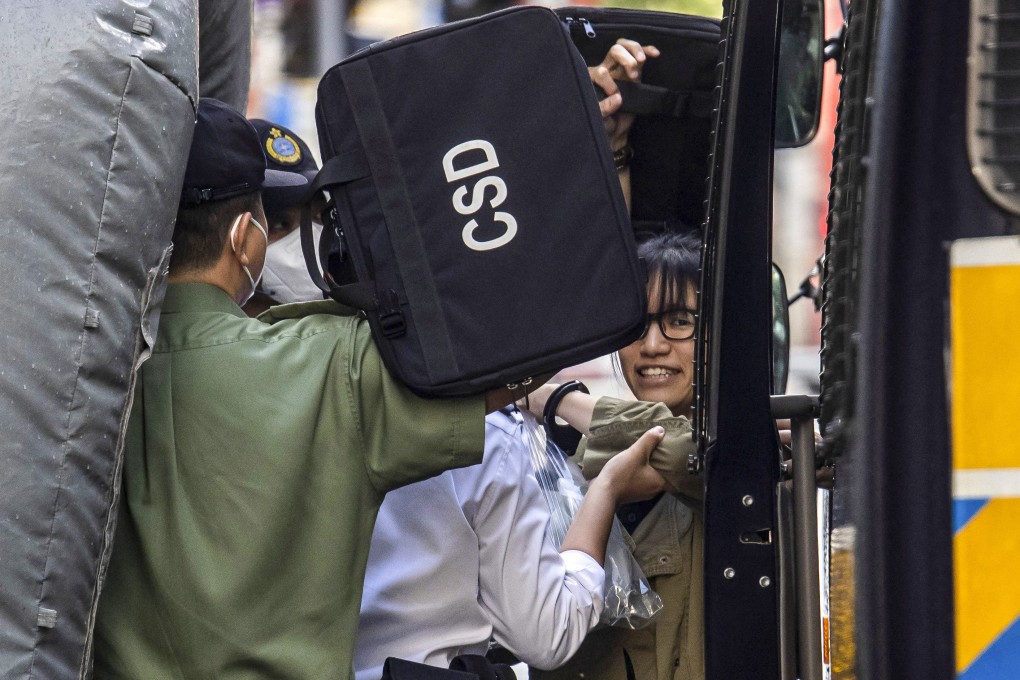Advertisement
Senior counsel argues 3 members of Hong Kong Tiananmen Square vigil group were denied fair trial, seeks to overturn convictions
- Philip Dykes says his side was ‘fatally handicapped’ while defending the accused because investigators had withheld evidence
- Ex-vice-chairwoman Chow Hang-tung and two former standing committee members were each sentenced to 4½ months behind bars earlier
Reading Time:3 minutes
Why you can trust SCMP

Three core members of a now-dissolved alliance behind Hong Kong’s Tiananmen Square vigil have been denied a fair trial, a senior counsel has argued in an appeal seeking to overturn their convictions for refusing to assist police in a national security investigation.
Advertisement
Philip Dykes on Wednesday said his side had been “fatally handicapped” while defending the accused because investigators had not given them the evidence they had suggesting the Hong Kong Alliance in Support of Patriotic Democratic Movements of China was a “foreign agent”, which formed the basis of the police request for cooperation.
The appeal filed in the High Court shed light on the extent of police power under the national security law’s implementation rules, as well as the status of the protocol under the Beijing-imposed legislation.

Former alliance vice-chairwoman Chow Hang-tung and ex-standing committee members Tang Ngok-kwan and Tsui Hon-kwong were each sentenced to 4½ months behind bars for failing to provide the police commissioner with details about the group’s members, donors, financial reports and activities dating as far back as 1989.
A redacted police report earlier disclosed in court alleged the alliance’s ultimate goal, by organising the annual candlelight vigil over the 1989 crackdown, was to overthrow the Communist Party, which could amount to a subversion offence.
The implementation rules empower the police chief to demand a range of information from a foreign agent or one with links to Taiwan, but the trio argued they had no obligation to cooperate as the alliance was not a foreign agent.
Advertisement
In the original trial at West Kowloon Court, Principal Magistrate Peter Law Tak-chuen concluded that reasonable belief was needed to demand compliance with the rule, meaning prosecutors did not have to prove the alliance was a foreign agent to justify calling for help.

Advertisement